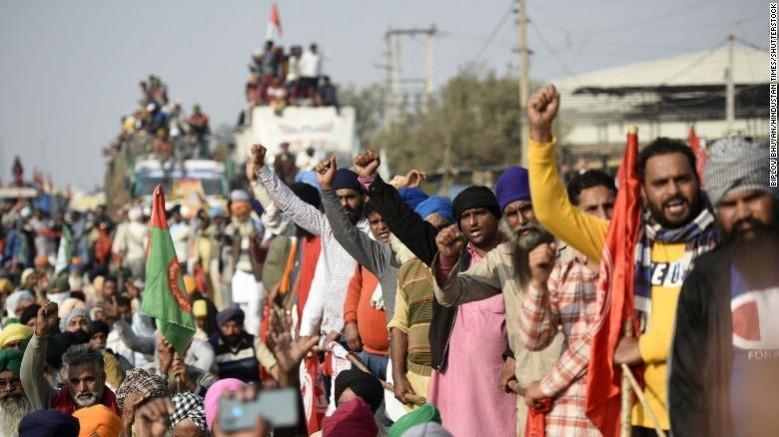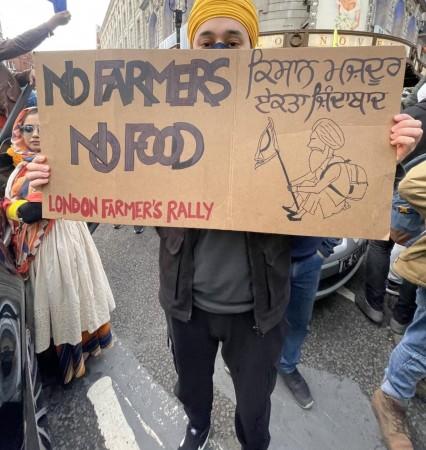Farmer agitations are not new in Punjab, with most of them having witnessed elderly and middle-aged participants, mostly men, demonstrating against the government in power to heed them. But this time, the protest along the borders of Delhi-NCR, is probably the first in India's recent history that people of all ages, irrespective of gender or age gaps, including women and children, have joined the stir in huge numbers and are adopting unique ways to highlight their demands over the farm laws.

During Tuesday's Bharat Bandh, 10-year-old girl from Punjab -- Jaskirat Kaur -- recited a poem in Punjabi on unity, what the farm land means to farmers and walking the path of God at Delhi's Tikri border. Her recitation won her big claps and cheers from the crowd.
Some farmers at the protest site said they heard this young girl, who had prepared some notes. Jaskirat's grandfather Diwan Singh had introduced her to the fellow protesters with pride. "The little girl has shown that not only the elderly, but children are also annoyed with the Modi government," the farmers said.
Neither age nor sex is the limit
On November 26, it looked like all of Punjab had congregated on the borders of the national capital to pressurize the Central government to pay heed to their grievances about the new farm laws.
While the government saw laws as progressive and reformative, the protesting farmers looked onto them as being detrimental to their future. There were protests in Punjab since September 23 when the laws came into effect, with a rail roko agitation being launched on October 1 that went on till November 23.
At many places, waves of farmers began arriving and despite police and other security forces trying to prevent them from moving towards Delhi, the protestors managed to reach the capital's borders in their thousands. "We are landowners, farming is our life," Gurcharan Singh, a farmer from Gurdaspur, told Gaon Connection.
"Our fathers bestowed the land to us, and we will leave it to our children and so it will pass on to the future generations. However, these dark laws threaten to snatch our land away and give it over to the Ambanis and the Adanis. So we have come here to protect our land," Gurcharan added.

Punjab and Haryana have seen the maximum protest against the agricultural laws. Between October 3 and October 9 this year, Gaon Connection conducted a rapid survey in 16 states on the Indian farmers' perception of the new agri-laws. The survey was conducted among 5,022 farmers across 16 states of the country.
The face-to-face survey sought the farmers' response to various central government and state government policies, mainly, the agricultural laws, open markets, one nation one market, mandi system, MSP, the impact of agriculture ordinances, their apprehensions, income from agriculture, and others.
The massive demonstration by the farmers to protest against the moves undertaken by the central government is likely to stay here for long, withstanding the barriers and enduring water cannons, tear gas and lathi charge.















